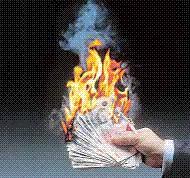JOINT PRESS RELEASE from CompleteMediaGroup and the Forum for Stable Currencies:
At 11am on Thursday 23rd April in the House of Commons Grand Committee Room, expert speakers will create the debate on financial reform at the Forum for Stable Currencies.
Expert speakers will be advocating economic democracy through freedom from National Debt. They will address the monetary problems connected with the banking crisis and global recession, discuss solutions to the problems and put together a framework for change. The speakers are leaders in the field and include Lord Sudeley, Austin Mitchell MP, Derek Wyatt MP, Michael Grimsdale ACIB (Associate of the Chartered Institute of Bankers), Abdallah Homouda, political scientist, respected journalist and TV commentator.
The event is sponsored by Bartercard, the world’s largest trade exchange. Bartercard enables account-holding businesses to exchange goods and services with each other, saving valuable cash, without having to engage in a direct swap. Bartercard has created a new form of stable currency; the trade pound, which offers one solution to the economic crisis because it allows businesses to trade and grow without the need for cash or credit from banks. This is increasingly important as private banks have replaced money with financial ‘products’ and ‘instruments’ as a medium of exchange; replacing prudence with profits by accumulating toxic assets, packaging unsustainable debts and selling them on to unsuspecting buyers. As a result the banks are suspicious and unwilling to lend or trade with each other.
Please email sabine@3d-metrics.com if you want to attend.
Notes to editor
Cash (notes and coins) and credit make up the money supply. After the Second World War, 53% of the UK money supply was in the form of credit (debt) issued by banks at interest. Now that figure stands at 97%. By making more and more money from credit (or debt) the financial economy is more and more disconnected from the real economy.
This is inherently unstable as the money necessary to pay for interest on credit is simply not there. That means virtually everybody is borrowing at interest to pay off interest as well as capital. The mathematics of compounding interest on interest results in a cycle of boom and bust. Because the money supply being is controlled by central banks, successive UK governments have tended to increase the ‘National Debt’ to fund growth or ‘fiscal stimulus’ packages, rather than make cut backs to repay the debt (unpopular with voters) or print money themselves. [See the Forum’s petition Stop the Cash Crumble to Equalize the Credit Crunch, asking the Treasury Select Committee to organize an inquiry into the money supply. More on http://tinyurl.com/666rwd]
Financial institutions are increasingly using legal enforcement to call in loans, cause bankruptcies, home repossessions, unnecessary litigation and even suicides. Through the national debt they also exploit and constrain the state’s budget, thus limiting political freedom.
The dubious benefits of unfettered market forces and a Western capitalist ideology have faced no serious opposition since Glasnost (openness) and Perestroika (restructuring) effectively brought an end to communism in the former Soviet Union. Even communist China has embraced capitalism; transforming its economy and becoming a global super-power in the process. It seems the world has made a collective decision to accept the inevitable economic losers as well as winners; deregulate and let the so-called free market work its magic… but now the market’s spell is well and truly broken together with the global economy.
At the recent G20 summit in London, the governments of the twenty most powerful nations on Earth decided to throw over $1 trillion at the ailing financial system. Along with previous commitments, this will take the total to over $5 trillion spent on propping up some of the biggest of those banks, institutions and financiers which have failed us so spectacularly.
Yet, instead of trying to paper over the deep cracks in the global financial system, we should aim to rebuild a more democratic and fairer global economy. Fresh thinking and a modern-day Glasnost (openness) and Perestroika (restructuring) are required for a capitalist world. Ushering in a second decade of meetings, the Forum for Stable Currencies will provide the platform for key decision makers to discuss the hows and whys of creating a better future.

